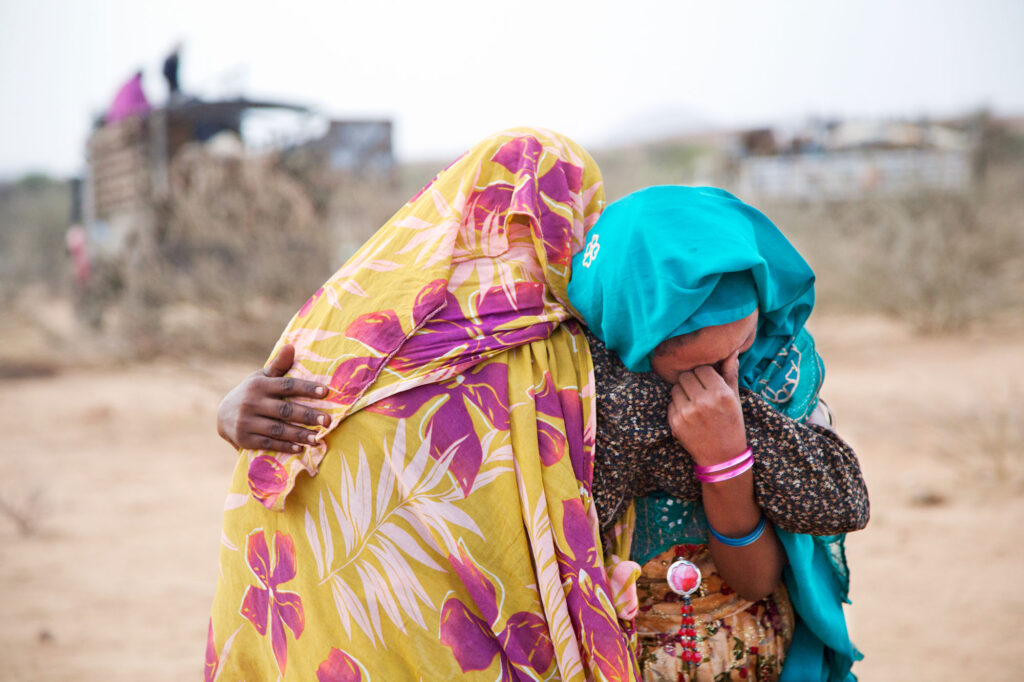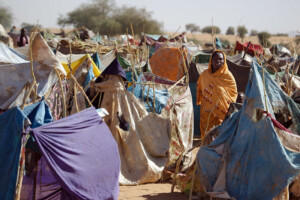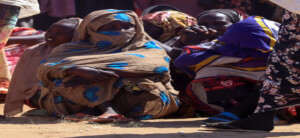Sudanese displacement to Egypt reshapes views on FGM

Displaced women in North Darfur (File photo: Albert González Farran / UNAMID)
Dr Dima Dabbous, MENA Director at Equality Now, a global rights group focused on women and girls, discusses the findings of a newly released report on changing attitudes towards female genital mutilation (FGM) among Sudanese communities in Egypt in an interview with Radio Dabanga. Dr Dabbous highlights how FGM continues to affect Sudanese families displaced to Egypt and outlines the complex interplay between forced migration, cultural identity, and shifting social norms.
The outbreak of war in Sudan in April 2023 has driven many to seek refuge in neighbouring Egypt. The newly released report, published by Equality Now in collaboration with Tadwein for Gender Studies, investigates how displacement is influencing FGM practices among Sudanese women. One of the few studies of its kind in the region, it sheds light on the persistence of the practice and evolving attitudes within the broader Sudanese diaspora.
Sudan continues to record some of the highest rates of FGM globally. The report draws on the 2014 Multiple Indicator Cluster Survey, which found that 86.6 per cent of Sudanese women aged 15 to 49 had undergone FGM. Among girls aged 0 to 14, the figure remained a deeply concerning 66.3 per cent.
The practice is tightly interwoven with cultural and social expectations. “The practice is so normalised that it often continues despite the law,” says Dr Dabbous. She explains that FGM is tied to ideas of family honour, purity, and marriageability. For many, uncut daughters are seen as a source of shame or at risk of remaining unmarried, while religious misconceptions further reinforce the tradition.
Even when families understand the harm caused, the pressure to conform within closely bonded communities remains powerful. “In Sudan, the fear of legal consequences is less strong than in Egypt,” she adds.
Legal changes
Sudan criminalised FGM in 2020, a milestone moment after years of sustained advocacy. Yet campaigners argue that enforcement is weak, and the law has not stopped the practice.
According to Dr Dabbous, tradition continues to hold sway. “The legal reforms were crucial,” she says, “but laws must be accompanied by robust public education, local advocacy, and community dialogue to create real change.”
‘Power of grandmothers’
Migration plays a complicated role in either entrenching or challenging FGM. “Those who rejected the practice back in Sudan typically carry that belief with them,” Dr Dabbous explains. Yet tight-knit migrant networks can also preserve the tradition. “Small Sudan networks play an interesting role in sustaining FGM practices among migrants. These communities are close-knit because migrants often feel ostracised by Egyptians. They support each other within their networks and, if they decide to practise FGM, they tend to rely on Sudanese midwives within these communities.”
Education emerges as one of the strongest indicators of change. Families with higher levels of education are far less likely to continue the practice. Intergenerational dialogue also proves critical.
“Grandmothers are key influencers in the decision to practise FGM,” says Dr Dabbous. “Fathers, by contrast, tend to have less influence on the matter.” Some men object to the practice, she notes, but their views are often overridden. “Some fathers complain that FGM affects their intimate relationships, but they usually defer to the grandmothers and mothers.”
To drive change, she believes campaigners must look beyond the obvious: “If we want to end FGM, we must target grandmothers and elderly family members because they are often the ones who decide whether FGM is performed or not.”
Looking ahead
With Sudan’s crisis deepening, the issue of FGM cannot be separated from broader concerns about health, rights, and rebuilding fractured communities. For Dr Dabbous, understanding is the starting point.
“The first step is always to understand the problem fully. If we don’t understand why FGM continues or stops, we can’t develop effective campaigns to address it. The more we know, the better we can plan our advocacy.”
She points to youth engagement, stronger legal enforcement, the involvement of religious and community leaders, and improved access to education, especially for girls, as crucial tools in changing minds.
“Understanding why FGM persists, or ends, is an important part of developing effective responses,” Dr Dabbous says. “That understanding should be informed by the lived experiences of Sudanese families themselves.”
Read the full report here: Female Genital Mutilation Amongst Sudanese Migrants In Greater Cairo: Perceptions And Trends











 and then
and then